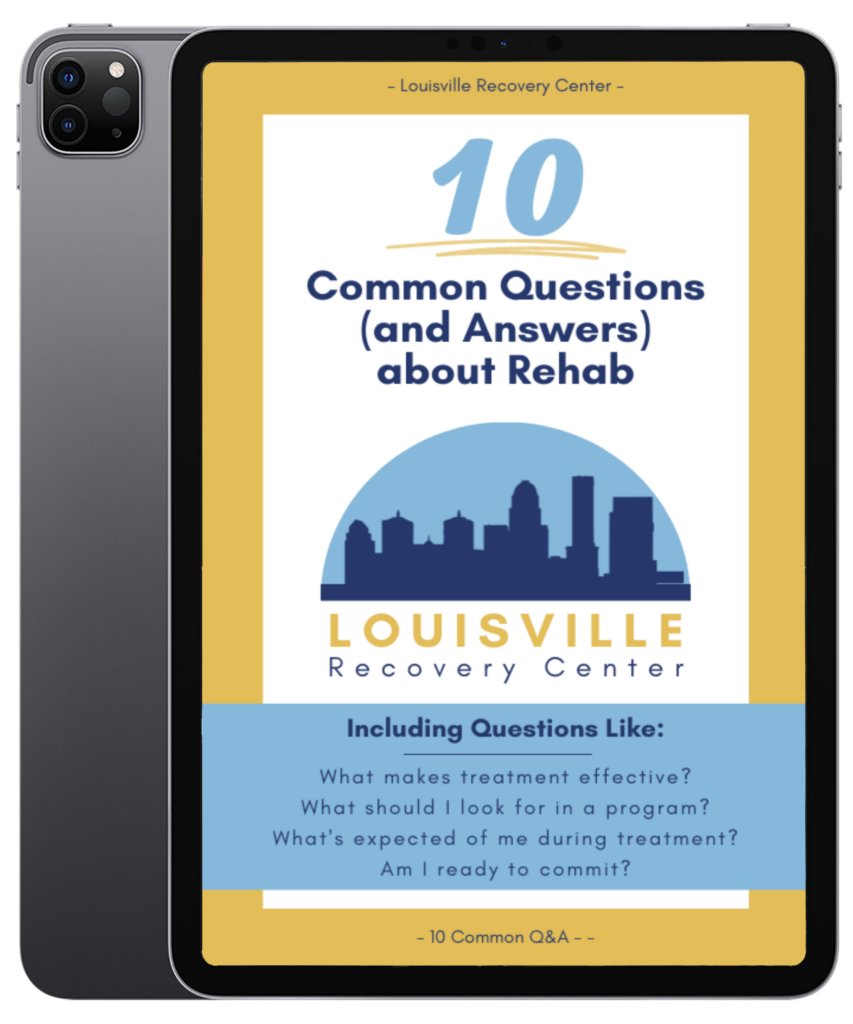Guide to Cincinnati Addiction Treatment Centers
Ohio has the 7th highest drug overdose death rate in the country – with 4,456 opioid overdose deaths in Ohio, accounting for 83% of all drug overdose deaths in the state. When seeking out substance abuse treatment, Cincinnati has increased its efforts, making substance abuse treatment more accessible for individuals looking to achieve and maintain sobriety. Embarking on your recovery journey can be intimidating at first. Our guide to addiction treatment centers in Cincinnati is designed to help you find the right kind of care for your treatment needs.
What Do Cincinnati Addiction Treatment Centers Treat?
Addiction treatment centers in Cincinnati can help people struggling with a wide variety of substance use disorders. Many treatment centers are equipped to treat:
- Alcohol Use Disorder (AUD): This involves a problematic pattern of alcohol consumption leading to significant impairment or distress.
- Drug Addiction: Including but not limited to addiction to substances such as opioids (prescription painkillers and heroin), cocaine, methamphetamine, benzodiazepines, and other illicit drugs.
- Dual Diagnosis or Co-occurring Disorders: Many individuals with substance abuse disorders also live with underlying mental health conditions. These conditions can include anxiety, depression, bipolar disorder, and PTSD. Treatment centers in Cincinnati may offer integrated care to address both substance use and mental health disorders simultaneously.
- Prescription Medication Abuse: The abuse of prescription drugs, whether opioids, stimulants, or sedatives, is a significant issue nationally and in Cincinnati.
- Polydrug Use: This refers to when people abuse multiple substances at the same time, which can create complications in treatment.

Fill Out This Quick Form To Download Our FREE 10 Q&A About Rehab eBook
Different Types of Treatment Options Available in a Cincinnati Substance Abuse Rehab
Substance abuse treatment centers in Cincinnati provide a range of tailored treatment options to cater to the diverse needs of individuals grappling with addiction. These treatments may be administered individually or as part of a holistic, multidisciplinary approach designed to tackle the multifaceted challenges of those in recovery. The precise blend of therapies and interventions is customized according to everyone’s distinct situation and desired outcomes.
Detoxification (Detox)
Many rehab centers provide medically supervised detox programs to help individuals safely withdraw from drugs or alcohol. This process helps manage withdrawal symptoms and ensures a smoother transition into ongoing treatment.
Inpatient Rehabilitation
Inpatient or residential rehab programs offer intensive, 24/7 care in a structured environment. Patients reside at the facility for the duration of treatment, receiving individual and group therapy, medical supervision, and other support services.
Outpatient Rehabilitation
In outpatient treatment programs, patients can participate in treatment while living at home. They can attend therapy sessions and other appointments at scheduled times. This option provides flexibility for those with work, school, or family commitments.
Individual Therapy
One-on-one counseling sessions with a therapist or counselor help individuals explore the underlying causes of their addiction. During individual sessions, individuals develop coping strategies and set personal goals for recovery.

Group Therapy
Group therapy sessions bring together individuals who are facing similar challenges in a supportive environment. Participants share experiences, offer encouragement, and learn from one another under the guidance of a trained therapist.
Family Therapy
Addiction often affects the entire family system, so family therapy sessions involve loved ones in the recovery process. This approach helps improve communication, address family dynamics, and strengthen support networks.
Medication-Assisted Treatment (MAT)
MAT combines FDA-approved medications with counseling and behavioral therapies to treat substance use disorders, particularly opioid and alcohol addictions. Medications help alleviate cravings and withdrawal symptoms, increasing the chances of successful recovery.
Holistic Therapies
To promote emotional and spiritual well-being, some rehab centers offer holistic practices. These therapies can include yoga, meditation, art therapy, acupuncture, and mindfulness techniques.
Aftercare Planning
Many drug and alcohol rehabs in Cincinnati may include aftercare planning services to help patients seamlessly transition to life after treatment. This can take several forms, from connecting to ongoing therapy or finding local support groups.
Support for Teens
Adolescents struggling with addiction or their mental health can find specialized support at Louisville Recovery Center. We offer an IOP for teens that is tailored to meet the unique challenges and experiences of this age group.
The Admissions Process at a Cincinnati Drug Rehab Center
The admission process for an addiction treatment facility in Cincinnati involves following several steps that are designed to ensure everyone receives personalized care tailored to their unique needs. The facility’s team offers empathetic support, addresses any inquiries or apprehensions, and facilitates a seamless transition into treatment. They collaborate closely with those entering the facility for treatment to overcome any obstacles to treatment and furnish the requisite support for successful recovery.
The admissions process in a Cincinnati rehab may include:
- Initial Assessment: The process often starts with an evaluation, typically conducted via phone or in person. An intake coordinator or admissions counselor collects the important information regarding personal substance use history, mental health and medical background, treatment objectives and insurance coverage information.
- Verification of Insurance Coverage: If applicable, the treatment facility verifies the individual’s insurance coverage to determine covered services and potential out-of-pocket expenses. This enables the individual to comprehend their financial obligations and what is covered by their insurance.
- Clinical Assessment: Once the initial assessment has been completed, the treatment center may seek to carry out a clinical assessment of the patient. This may be conducted by a licensed specialist or clinician, and information from this assessment will be used to determine the severity of the substance use disorder, to detect any co-occurring mental health conditions and to discuss any other medical considerations or pertinent factors influencing treatment planning.
- Treatment Planning: The treatment team formulates a tailored treatment plan based on the information gathered during the assessments to ensure they reach the specified treatment objectives. This plan will outline the recommended level of care (such as inpatient or outpatient), specific therapies and interventions, and recovery objectives.
- Pre-Admission Paperwork: Before starting the program, the individual or their legal representative may be required to complete essential paperwork, which may include consent forms, financial agreements, and HIPAA privacy documentation. This is done to ensure comprehension of rights and responsibilities throughout the duration of treatment.
- Admission and Orientation: On the admission day, the individual arrives at the treatment facility to finalize the admission process. This may involve interactions with staff, a facility tour, and attendance at an orientation session shining light on the program rules, schedule, and expectations.
- Initial Assessment and Treatment: Following admission, the individual may be assessed once more by medical and clinical personnel to finalize the treatment plan. From there, treatment begins. This may encompass medical detoxification, therapy sessions, medication management, and other treatment modalities.

Choosing an Addiction Treatment Center in Cincinnati
At Louisville Recovery Center, we recognize the challenges of locating the ideal addiction treatment facility, even within Cincinnati. Our dedicated and knowledgeable team is prepared to address any questions you may have regarding enrolling in a substance abuse rehabilitation center and starting the process of living a substance-free life.
If you or someone you love is contemplating addiction treatment in Cincinnati, don’t hesitate to contact Louisville Recovery Center. We’re here to provide insights into the substance abuse treatment journey and discuss the rehabilitation options available to you.
